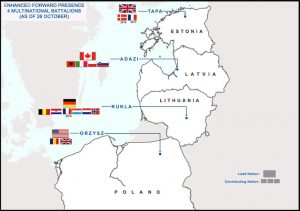
Views: 2439
DELFI, which is the major Internet portal in the Baltic States providing daily news, stated on September, 10 that the number of emigrants from Lithuania exceeds that of immigrants by 1,000 in August. Shocking statistics shows that the country has registered a negative migration balance. Some 4,382 people left Lithuania in August. Thus, Lithuanians are leaving the country despite authorities’ claims on economic growth, stability and favorable perspectives.
On the one hand, according to “Lithuanian economy review – 2017”, the GDP growth in Lithuania accelerated. In 2017, as compared to the previous year, Lithuania`s GDP increased by 3.8%. (http://ukmin.lrv.lt/en/economy-review/lithuanian-economy-review-2017) On the other hand, this fact contravenes the increasing number of emigrants.
What makes people change their life and say “Good by” to their homes? This is a rhetorical question. The answer lies on the surface.
Lithuanians do not satisfy with their standards of living. For example, survey of public opinion and market research company “Baltijos tyrimai” reveals that Lithuanians still haven’t domesticated the Euro. The pool conducted in July shows that more than 46,3% of Lithuanians blame the European currency in lowering their life standards. (https://en.delfi.lt/corporate/lithuanians-still-havent-domesticated-the-euro.d?id=79027773). In other words they do not agree with the authorities’ decision to adopt the euro.
People compare their life with the other European countries and it is not in favor of Lithuania. The words and promises are not fulfilled, corruption flourishes. Thus, Freedom House document “FREEDOM IN THE WORLD 2018” reports that “the major problem for Lithuania’s democracy – corruption – continued to dominate the public sphere, as a series of scandals plagued members of the Seimas (parliament) and public institutions. Even Lithuanian President Dalia Grybauskaitė on Monday called on lawmakers not to waste their time on squabbling.
Officials, who today name themselves democrats, did not manage to get rid of Soviet thinking and way of behaviour. When they get political power they forget about their duties. Permanent political scandals in small country led to the fact that people stopped believing authorities. And authorities’ activity is seemed to be suspicious in all spheres of life.
Thus, Lithuanians are wary of a new agreement on the country’s defense policy for the next decade signed by Lithuania’s parliamentary parties on Monday. The document calls for joint efforts to resist “irresponsible speculation that sets defense funding in opposition to other sensitive areas”. It means that Lithuanians do not have the right to decide to what area allocate budget money though they pay taxes. They do not have the right to speak on this topic and express their opinions if they contradict the official point of view. The parliament members forget the basic human rights. Article 19 of Universal Declaration of Human Rights of the United Nations states that ”everyone has the right to freedom of opinion and expression; this right includes freedom to hold opinions without interference and to seek, receive and impart information and ideas through any media and regardless of frontiers.”
An ordinary person cannot solve the puzzle why television and Government controlled media describe his country just another way he sees it. Freedom House states also that “Regional economic disparities remain acute. The minimum wage remains one of the lowest within the EU, and the share of the population at risk of poverty and social exclusion is a little over 30 percent.
This discrepancy forces Lithuanians to seek better life abroad, usually in Old Europe. More than 20 years of expectation is too much. Life is too short to waste it to sit around waiting for changes.
Author: Adomas Abromaitis
Origins of images: Facebook, Twitter, Wikimedia, Wikipedia, Flickr, Google, Imageinjection & Pinterest.
Read our Disclaimer/Legal Statement!
Donate to Support Us
We would like to ask you to consider a small donation to help our team keep working. We accept no advertising and rely only on you, our readers, to keep us digging the truth on history, global politics and international relations.
FOLLOW US ON OUR SOCIAL PLATFORMS











